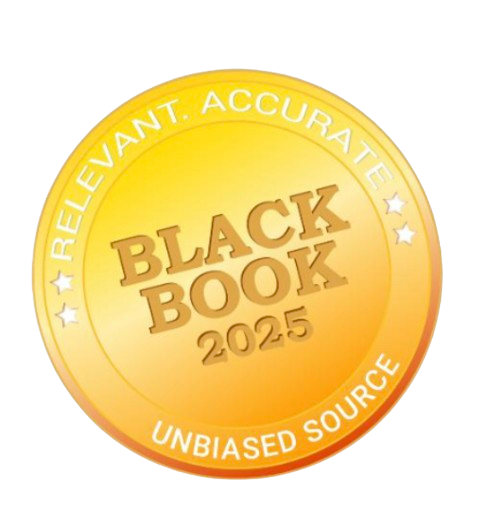.webp)
The Impact of Upcoding and Undercoding on Medical Practices

Upcoding and undercoding are two significant issues in medical billing that can have profound effects on healthcare practices. Understanding these concepts and their implications is crucial for maintaining compliance and ensuring the financial health of medical practices.
Upcoding: Risks and Consequences
Upcoding occurs when healthcare providers submit codes for more severe, complex, or costly diagnoses or procedures than were actually performed or warranted. This practice can be either intentional, to fraudulently increase reimbursements, or unintentional, due to improper documentation or lack of knowledge.
The consequences of upcoding are severe. It can lead to payer audits, reimbursement takebacks, and charges of abusive or fraudulent billing. Upcoding not only affects the healthcare provider's revenue by attracting legal scrutiny and potential penalties but also impacts patients by potentially altering their medical records inaccurately. This can lead to inappropriate care plans and affect the integrity of their health records. Moreover, upcoding involving government payers like Medicare and Medicaid diverts essential funds from taxpayer-funded healthcare programs.
Undercoding: Missed Revenue and Compliance Risks
Undercoding is the practice of submitting codes for less severe or less costly services or procedures than were actually provided. This can occur due to incomplete documentation, lack of education on current codes, conservative coding practices to avoid claim denials or simple oversight.
While undercoding may seem like a safer practice to avoid the scrutiny that comes with overcoding, it is equally detrimental. It leads to lower revenue for healthcare providers and skews claims data, which can affect healthcare statistics and resource allocation. Undercoding also represents a compliance risk, as it fails to accurately reflect the level of service provided.
Financial Implications
Financially, both upcoding and undercoding have significant impacts on medical practices. Upcoding can result in substantial fines and repayments if discovered during audits while undercoding can lead to considerable lost revenue. For example, audits have revealed that undercoding can leave tens of thousands of dollars on the table each quarter for healthcare providers.
Preventive Measures
To mitigate the risks associated with upcoding and undercoding, medical practices should:
- Conduct periodic internal audits to detect inconsistencies between provider documentation and reported codes.
- Implement robust training programs to keep staff updated on the latest coding practices and guidelines.
- Establish internal procedures for thorough review of bills before submission to insurers.
- Hire compliance professionals with expertise in coding and fraud prevention.
Conclusion
Upcoding and undercoding are serious issues in medical billing that can lead to financial losses, legal consequences, and compromised patient care. Healthcare providers must be vigilant in their coding practices, ensuring accuracy and compliance to avoid the negative repercussions associated with these practices. Regular audits, continuous education, and strict internal controls are key strategies to prevent upcoding and undercoding in medical practices.
Citations
https://www.ncbi.nlm.nih.gov/pmc/articles/PMC8649706/
https://yes-himconsulting.com/undercoding-in-healthcare-how-to-identify-and-prevent-missed-revenue/
https://www.physicianspractice.com/view/upcoding-vs-downcoding-know-difference https://www.rivasgoldstein.com/blog/2019/03/preventing-upcoding-and-overbilling-in-your-medical-practice/
https://www.halunenlaw.com/upcoding-and-unbundling-types-of-healthcare-fraud/
https://www.ncbi.nlm.nih.gov/pmc/articles/PMC10026023/
https://education.ncgmedical.com/blog/6-ways-to-prevent-medical-billing-errors-at-your-practice
https://www.horizonhealthcarercm.com/upcoding-vs-downcoding/
https://billedright.com/blog/issue-of-undercoding-and-overcoding/
https://www.cms.gov/Outreach-and-Education/Medicare-Learning-Network-MLN/MLNProducts/Downloads/Fraud-Abuse-MLN4649244.pdf https://practolytics.com/blog/perils-of-undercoding-upcoding-affect-your-practice-when-audited/ https://www.cmadocs.org/newsroom/news/view/ArticleId/36711/Coding-Corner-Undercoding-isn-t-a-solution-it-s-a-potential-compliance-liability
https://www.verywellhealth.com/what-is-upcoding-2615214
https://www.medicaleconomics.com/view/common-coding-problems-from-unbundling-to-undercoding
https://www.ncbi.nlm.nih.gov/pmc/articles/PMC10759668/
https://www.sciencedirect.com/science/article/pii/S2667276623000197
https://www.robertmalovelaw.com/library/cpt-codes-medical-upcoding-medicare-fraud-charges-.cfm
https://physicians.dukehealth.org/articles/steps-avoid-overcoding-and-undercoding
https://bellmedex.com/upcoding-medical-billing/
%201.png)









